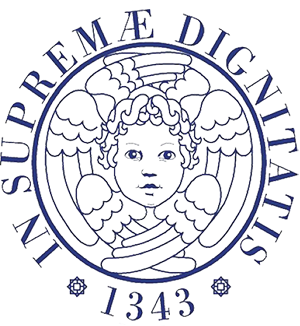Definition of the disease:
Idiopathic Retroperitoneal Fibrosis (IRF) is a non-specific inflammatory disease that, by occupying the retroperitoneum, encompasses ureters by constituting a classic case of urethral obstruction (from the outside). This can also lead to severe kidney failure.
Definition of the surgery:
The surgical correction of this problem is the insertion of the ureter into the peritoneal cavity, where it can not be compressed from the outside by the IRF.
Indications:
Such surgical correction is practiced when attempts for medical therapy fail (with anti-inflammatory, cortisone and antimitotic). Patients may therefore be in poor general conditions (therefore with increased operational risk) with kidney failure or temporary external drainage of the urine (e.g. nephrostomy). Basically, once medical therapy has failed, there are no alternatives outside the external drainage of the urine (with nephrostomy) or internal with autostatic urethral catheter double J type, which should be changed 3-4 times a year and may clog.
Technical Description:
The surgical incision is generally abdominal from the lower extremity of the sternum up to the navel or up to the pubic (xifo-pubic, vertical) and the technique involves the frank opening of the peritoneal cavity inside which the intestine is located.
The posterior peritoneum is open (more often bilaterally because more often the disease affects both ureters) lateral to the colon; This organ is shifted and thus the retroperitoneum accessed where the urogenital tract of the disease is located. The ureter must be identified and isolated from the fibrosis that inglobates it (“Ureterolysis”) from the ureteropielic junction up to its bladder outlet. The removing of the fibrotic tissue that constitutes the disease is not part of the technique. If ureter isolation from the fibrous tissue is particularly difficult, a tumor (to be excluded with biopsies) is suspected.
The ureter is then separated from the fibrotic disease by placing it within the peritoneal cavity; This is achieved by closing the rear peritoneum behind the ureter, from the kidney’s height to that of the bladder, with sufficiently wide openings of the peritoneal back wall to avoid stenotic processes.
Improvement of the results has been reported with ureteral envelopment in a sheath made of omentum (where it is less subject to the fibrosis).
In the case of particularly extensive fibroids or intraperitoneal growth, the ureter is lateralized, placed in a lateral position (where it can not be touched by the fibrotic process); Then the peritoneal wall is closed.
It should be remembered that, in the case of non-releasable or damaged urethral portions, a urethral section with terminal anastomosis of the stumps may be required.
Better intraoperative ureteral identification is facilitated by pre-operative placement of a urethral catheter; It can remain as a “tutor” for a few days after the intervention. It is appropriate to position one or more drains in the retroperitoneum, to be removed according to the circumstances (amount of drained material) in the days following the intervention.
It should be remembered that the surgery is currently available in dedicated Centers, also with laparoscopic access.
Preparation for intervention:
As a surgical procedure with transperitoneal access, good intestinal preparation obtained from a low fiber diet 2 days prior to surgery, ointment cleansers and evacuating enemas are required. Antithrombotic prophylaxis is also needed.
It may be useful, as already mentioned, to position before the surgery the urethral catheters in order to detect the ureter faster after dissection.
Duration of intervention:
This is a potentially long intervention of 3 to 5-6 h.
Type and duration of hospitalization:
Hospitalization is of an ordinary type and the average stay ranges from 7 to 10 days. During the hospital stay the renal function should be monitored and the ionemia (which may incur into imbalances after unblocking of the excretory pathway).
Results:
Literature reports positive results of ureterolysis in 90% of cases. A relapse is always possible.
Advantages:
Surgery is the ultimate solution to the urethral obstruction and to the damage to the renal function that follows.
Disadvantages:
Are those of a major surgery, with large parietal incision and exposure of all the abdominal bowels.
Side effects:
no one in particular.
Complications:
Infectious complications are always possible, as in any type of surgery. The greatest risk is related to possible bleeding and possible injury to nearby organs, from the intestines and its vascularisation (as the peritoneal cavity is opened), but with a special risk for retroperitoneal organs (kidneys, pancreas, large vessels) and (due to the mobilization of colon flexion) spleen. The urethral stenosis of the ureter due to the surgery itself is always possible.
At discharge:
Attentions to be paid are those related to large abdominal incision: morigerized life, lack of physical effort, light food, hyperhydration, etc.
How to behave in case of complications arising after discharge:
Given the complexity of the disease and the surgical solution, in case of abdominal pain, alteration of the bowel area, fever and more, it is advisable to refer to the urological center of reference.
Checks:
The overall outcome should be evaluated for normalized renal function or improved with urography and especially TAC. However, prolonged postoperative monitoring of renal function (even years) is also possible because IFR is a progressive disease and a relapsing urethral clog and / or an urethral stenosis caused by surgery (see above) are always possible.

